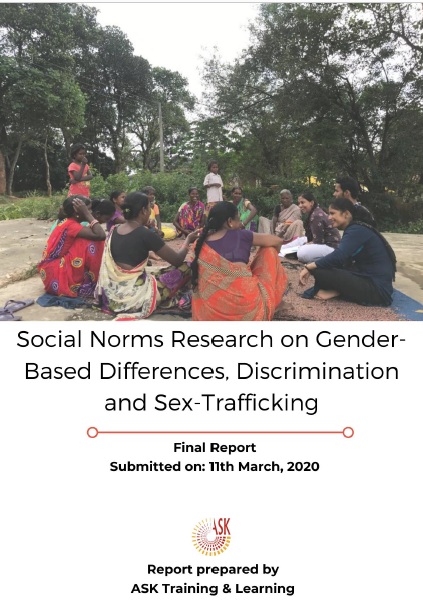- Log in to post comments
This report shows the existing and most prevalent social norms in India in the context of human trafficking and critically analyse their influence and practice; the emerging social sanctions and identify barriers to transformation of regressive norms, which perpetuate gender discrimination and violence. It also informs us the factors such as beliefs, aspirations, attitudes and their interplay with social issues, such as social networks and support in the context of reintegration of human trafficking. In doing so. It will also highlight the role of the positive deviants within the families, communities and institutions that can trigger a lasting change.
Learn more in the study about
- the existing and most prevalent social norms that perpetuates stigma against survivors of trafficking, creating obstacle in successful reintegration.
- how the social norms perpetuate attitudes, beliefs and behaviours towards discrimination and violence against survivors of trafficking.
- the role of religion in influencing social norms
- how descriptive and injunctive norms reinforce each other, and how normative beliefs of undetectable practices are created and can be changed
- the positive norms that challenge or can challenge the harmful social norms.
- barriers to transforming social norms, gender norms and norms related to masculinity which perpetuates violence.
- strategies for changing social norms and make specific recommendations for promoting behavioural change.
